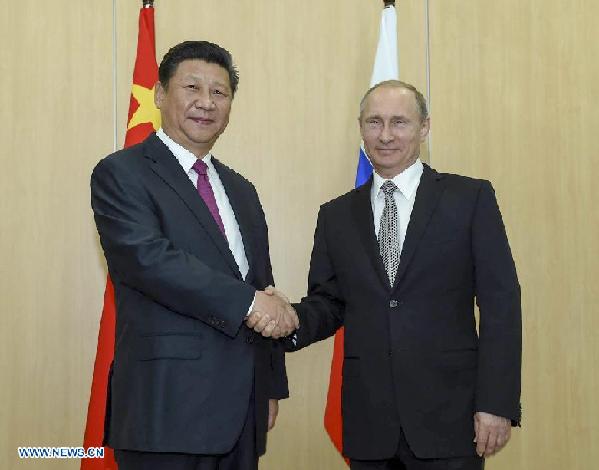BRICS a builder of more inclusive global order
|
|
|
Chinese President Xi Jinping (L) shakes hands with his Russian counterpart Vladimir Putin in Ufa, Russia, July 8, 2015. (Xinhua/Li Xueren) |
For the second time in two months, President Xi Jinping is visiting Russia, this time to attend the BRICS summit and the 15th meeting of the Council of Shanghai Cooperation Organization Heads of State in Ufa, capital of Russia's Bashkortostan republic, on July 8-10.
At the BRICS summit, Xi is expected to meet with Russian President Vladimir Putin for the second time this year, and meet leaders of other BRICS member states - Brazil, India and South Africa. How the member states should cooperate to transform BRICS into a leading transnational economic bloc could be high on the agenda of the leader-to-leader meetings.
As British economist Jim O'Neill, now commercial secretary to the United Kingdom's Treasury who coined the term "BRIC" to describe leading emerging markets, said two years ago, China is the one and only BRICS economy. In other words, he implied that the economic engine of the bloc was now China, whose annual average growth rate is estimated to drop to about 6.6 percent by the end of this decade. Among all BRICS states, India has been the biggest disappointment for the former chairman of Goldman Sachs Asset Management.
O'Neill coined the term more than a decade ago probably to identify new overseas destinations for Goldman Sachs and disperse the risks of investment in advanced Western economies.
Yet it has become an international political concept and a transcontinental organization of five emerging economies, boosting China's image and confidence in the post-Cold War era as a regional leader. By including the BRICS summit in the report of the 18th National Congress of the Communist Party of China in 2012, Beijing attached greater importance to the bloc in order to supplement its multilateral diplomacy.


